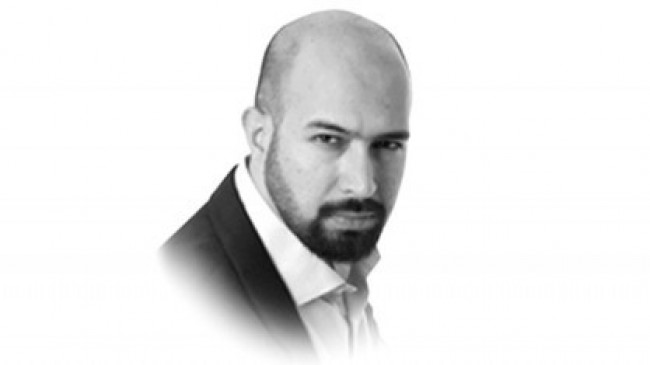
Though contemporaneous to those militants being labelled as “terrorists” who are being confronted ‘inland’ (in the urban centres and Swat) by the Pakistan military, the insurgents who are attacking US and Pakistani troops from the border areas have been downgraded to “tribals”, “Pashtun nationalists” and “extremist militias” in the ever-evolving newspeak of the Pakistani media.
Moreover, the collateral damage and civilian casualties caused by US drone strikes are being widely reported, with little mention of losses incurred by assaults from Pakistani gunships and artillery barrages on entire villages — case in point: the Tirah Valley killings in Khyber. Is this editorial shift developing due to US involvement in the affected area, a mediagenerated thumbs-down for disappointing America’s noblesse oblige? Is the mere engagement of the US in the Af-Pak border region enough for the media to create one ‘good’ (inland) and one ‘bad’ (tribal areas) perception of the different theatres of conflict within this unified and overarching war?
How is the media’s regional bias (considering all media houses are headquartered in the more developed Sindh and Punjab) affecting the coverage of the war? Pakistan is fighting insurgencies in the lesser-developed west and north. Infrastructure is scarce while access and outreach are difficult. How is this logistical gap affecting the frequency, veracity and depth of stories coming from a critical part of the country? What about ethno-centricity within media? Most mainstream journalists are not from the war-affected areas. Most do not speak the languages of the volatile west and north, nor do they have family sources within tribal communities that are key for tracking developments and inspiring proactive reporting in a region where personal relationships guide political realities.
Considering that most reporting in these areas has been community-based, is this ethnic fissure between mainstream journalists and their assigned beat creating a skewed and biased perspective of the war? What more beyond mere self-awareness by the actors involved must occur in order for the media to truly reflect the region? What about coercion? Though immensely powerful, the Pakistani media is vulnerable to violence now more than ever before. Considering that the Taliban recently passed a fatwa against the media (and have been executing it unofficially as well), will the media be coerced by them?
If so, can we expect journalism to become increasingly less ‘secular’ as it strives to prove its ‘religious’ credentials to everyone, including the legitimate or banned political and militant groups that threaten them? What of the media’s manipulation by Pakistan’s all-powerful military-intelligence apparatus? Some local think tanks, allegedly financed by different intelligence agencies (often with diverging agendas) have been on the offensive for the last few years, propagating their views through the anarchic and rapidly proliferating world of cyberspace. Their perspective is gaining popularity in the mainstream media as reporters increasingly cite online sources of dubious heritage.
Is this correlation between ‘quack and hack’ online ‘experts’ and bloggers and mainstream reporting incidental or engineered? Is it motivated by a convergence of ideology and editorial leaning or other, less ‘principled’ factors like financial incentives? The relevancy of this question is compounded by the widely held belief that several Pakistani news portals and websites are allegedly funded by fronts for terrorist groups, even al Qaeda. And finally, where does the money trail lead? Will this country’s dragging economy continue to force the media to intensify its ‘tabloid’ style of coverage as the fight for advertising revenue and ratings become the final arbiter of survival?
Will the Pakistani media cut its family-run roots and transition to the advanced stage of corporate ownership, shedding one set of deficiencies for another, possibly more problematic, one? And will this changeover make for a more secular, nationalist or liberal media? Finally, how will that evolution affect the political economy as well as the public relations of the Pakistani state, especially during a time of war? The nexus of press and politics in Pakistan has been left undiscovered for too long.
Watch this space to track that evolution.

















COMMENTS (9)
Comments are moderated and generally will be posted if they are on-topic and not abusive.
For more information, please see our Comments FAQ